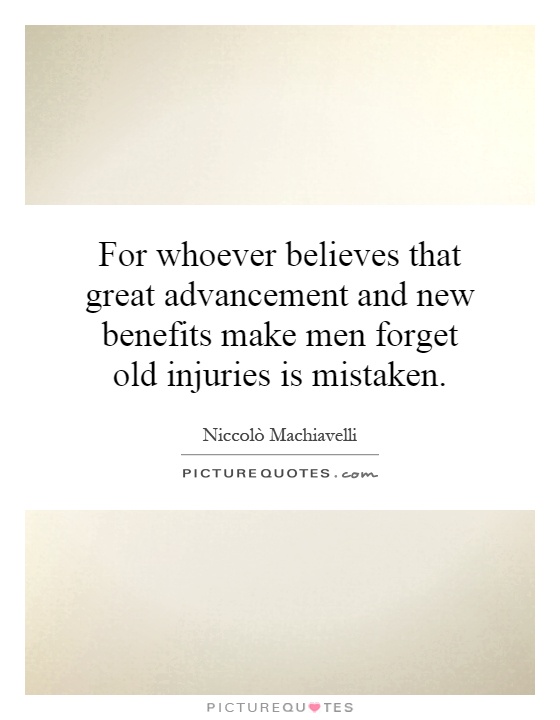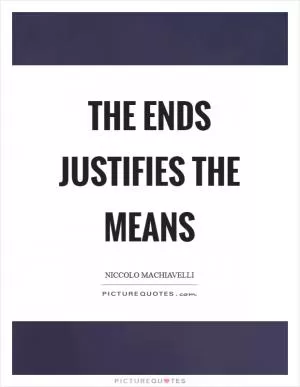For whoever believes that great advancement and new benefits make men forget old injuries is mistaken

For whoever believes that great advancement and new benefits make men forget old injuries is mistaken
Niccolò Machiavelli, the renowned Italian philosopher and political theorist, is often associated with his pragmatic and ruthless approach to power and governance. In his seminal work, "The Prince," Machiavelli explores the complexities of human nature and the dynamics of political power. One of the key themes that Machiavelli addresses in his writings is the idea that great advancements and new benefits do not necessarily make people forget old injuries.Machiavelli argues that human beings are inherently self-interested and motivated by their own desires and ambitions. While advancements and benefits may temporarily distract individuals from past grievances, they do not erase the underlying resentments and grievances that people hold. Machiavelli believed that individuals are quick to forget past injuries when they stand to gain something from doing so, but that these grievances can resurface at any moment.
In the context of politics and governance, Machiavelli's assertion that people do not forget old injuries is particularly relevant. Leaders who seek to maintain power and control must be mindful of the grievances and resentments that their actions may have caused in the past. While offering advancements and benefits may temporarily appease the populace, it does not address the underlying issues that may still linger.
Machiavelli's insights into human nature and the dynamics of power have had a lasting impact on political thought and philosophy. His understanding of the complexities of human behavior and the importance of addressing past grievances in order to maintain stability and control remain relevant in today's world.












 Friendship Quotes
Friendship Quotes Love Quotes
Love Quotes Life Quotes
Life Quotes Funny Quotes
Funny Quotes Motivational Quotes
Motivational Quotes Inspirational Quotes
Inspirational Quotes